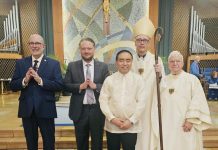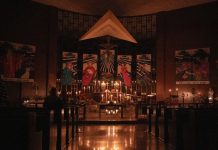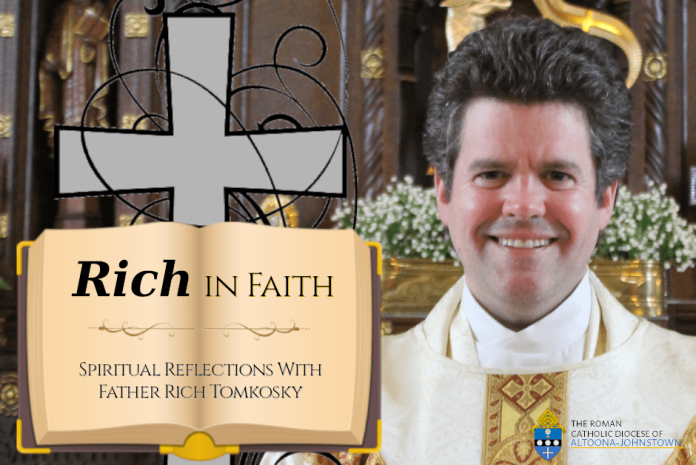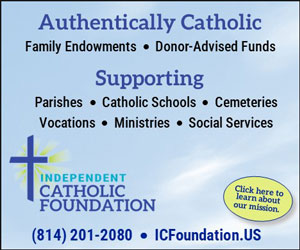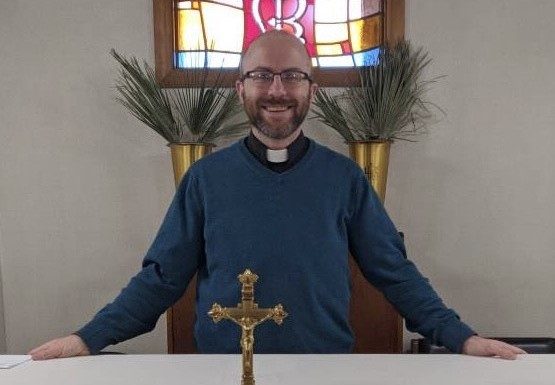By Father Rich Tomkosky
Without the honest acknowledgement of our struggle with pride, sinfulness of various sorts, and our need for God, we are not going to make much progress in the Christian life of discipleship. This is also why the regular reception of the Sacrament of Confession is so important, if we want to grow, because by going there we are saying like the tax collector in the Gospel: “God be merciful to me a sinner.” Besides these general points, what is Jesus trying to teach us by this story of the Pharisee and the tax collector?
Humility is the absolute necessary foundation for an authentic relationship with the Lord. The reality is we often have to be “knocked off our high horse,” by some big event in order to really grow in humility. It often doesn’t happen during the course of daily routine, although it can if we open our hearts to the grace.
Bringing it closer to home I think of my own life, and it was only after I went through some great suffering as a teenager in relation to my family and my friends that I woke up spiritually. I realized the need to make an honest confession of my sins in the Sacrament of Reconciliation and to turn my life over to God and to strive to live the Catholic faith with integrity, which I had not done up to that point in my life, but did as most worldly people do: make up my own rules of how I was going to live and not have God and the Catholic Church tell me what to do – if I even thought about it.
Hopefully I am still making progress in this regard, but looking back over my own life and the many lives I have dealt with as a priest, it is through the mystery of the Cross and suffering that most people learn humility – if one ever does – and the need to turn over one’s life to the Lord and His loving care and to be obedient and loving sons and daughters of the Catholic Church, which Jesus Himself founded and promised to be with until the end of time through the ministry of Saint Peter and his successors as Pope (see Matthew chapter 16: 13-20). No other Church can make that claim.
Our religious observance must be a reflection of our interior disposition of humility and love for the Lord. We see Jesus comparing the Pharisee and the tax collector’s religious dispositions. I don’t think Jesus is saying that is not important what we do in our lives or how we live. In and of itself it is not good to skip out on Mass, or to be greedy, or dishonest, or adulterous, or to take advantage of people like the ancient tax collectors did. But what the Lord is clearly saying is it doesn’t matter how “good” a life your lead on the surface for all to see, if inside you are full of pride and self-righteousness and other evils as opposed to love and humility.
Notice Jesus didn’t say the tax collector was leading a great life, but at least he acknowledged his sinfulness and need to turn to God and hopefully change. The Pharisee on the other hand thought he was “set” because he was doing all the right things and sadly became proud because of it and almost it seems wanted God to give him a little pat on the back for being such a “good” boy! How spiritually deluded and foolish he was and we also can be!
We can fall into this same spiritual trap if we are not careful. That is why it is so important each day to say in prayer, “Lord Jesus, be merciful to me a sinner.” This little prayer became what is known at the “Jesus prayer” in our Catholic spiritual tradition, and by saying it throughout the day many people down through the ages have both called to mind the presence of God and grown in holiness by relying on Jesus for all things in ever greater humility of heart.
You really see this reality in monastic life, but also among some very good and holy lay people. Saint John the Baptist had that similar interior disposition of love and humility when he said about Jesus, “He must increase and I must decrease” (John chapter 3: 30).
The Lord is so good to us. He gives us the Sacramental life of the Church, daily graces, the moral teaching of the 10 Commandments and of the Catholic faith, which has had the wisdom of 2000 years of reflection upon the human condition guided by the Holy Spirit, a gift ever deeper prayer if we open our hearts to Him in humility and love and finally the mystery of the Cross to help us grow. By His grace may we make a bit of progress each day in the ways of holiness to shine as missionaries of His love and truth to others. God bless you.
Father Rich Tomkosky is the Pastor of Saint Thomas the Apostle Parish in Bedford and the Pastor of Seven Dolors of the Blessed Virgin Mary Parish in Beans Cove.




